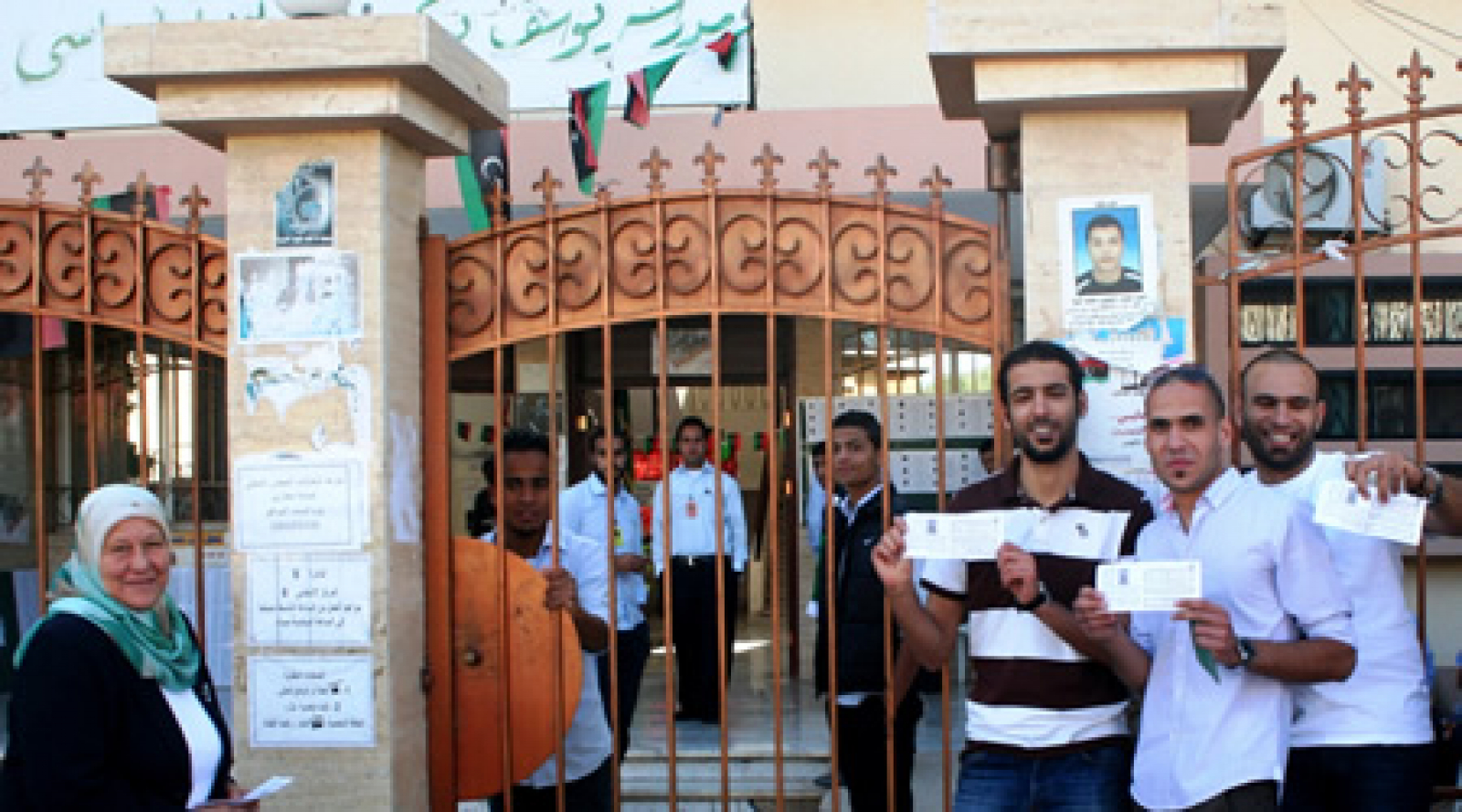
SHARE
ISSUES
After Libya’s first democratic election in more than four decades, citizens are proud of having freely elected leaders. But they express concern over the country’s persistent security challenges and disappointment with its new government, according to a new public opinion study conducted by NDI.
In 16 focus groups conducted from Oct. 28 to Nov. 10, the Institute examined the opinions of voters and non-voters in six cities across Libya. The research took place four months after the July 2012 election for the General National Congress (GNC), which is tasked with overseeing the drafting of a new constitution.
NDI’s research was designed to capture citizen sentiments about the political landscape and expectations for the next phase of Libya’s transition. Key findings from the study include:
- Despite mounting concerns over Libya’s security challenges and considerable disappointment with the country’s new government, many Libyans still believe that the country is headed in the right direction, even if the pace is too slow.
- There is a desire for the government to establish long-term solutions to security challenges. However, citizens lack confidence in the government’s ability to strengthen security forces or to enforce laws.
- Libyans are proud and enthusiastic about their country’s historic July 7 national elections and describe the process as well-organized and the outcomes as legitimate, but they also voice criticisms about the compressed timeframe leading up to the vote and difficulty accessing information on candidates, political parties and voting processes.
- A widely perceived lack of progress since the elections is eroding public confidence in the GNC, which Libyans claim has failed to take action on key issues such as reining in the militias, drafting the constitution or stabilizing the economy. Goodwill toward political parties has similarly declined after the elections, as many believe that parties in the new government are obstructing progress by placing their interests before the country’s.
- Libyans overwhelmingly agree that moderate Islamic principles should influence governance, but opinions vary on exactly what that means in terms of the role religion should play in public life. There is broad consensus that the new constitution should draw heavily from Islamic Shari’a law, but also consensus on the need to avoid extremism.
The findings provide Libyan decision makers—in political parties, civil society organizations and the government—with timely, relevant information on public opinion that can inform policies and make them more responsive to citizens’ interests and needs. The results of this study can be evaluated in comparison with qualitative public opinion research conducted by NDI in Libya in November 2011 and April 2012.
Production of this report was made possible through funding from the State Department’s Middle East Partnership Initiative (MEPI).
Related:
- Libyan Civil Society Organizations Unite to Observe Historic Vote
- Libyan Political Parties Sign Voluntary Code of Conduct; Call for Peaceful Elections
- With Elections in Sight, Libyans Concerned About Security, Country's Direction
Published Dec. 21, 2012


